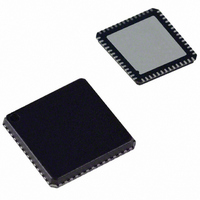AD9959BCPZ Analog Devices Inc, AD9959BCPZ Datasheet - Page 39

AD9959BCPZ
Manufacturer Part Number
AD9959BCPZ
Description
IC DDS QUAD 10BIT DAC 56LFCSP
Manufacturer
Analog Devices Inc
Datasheet
1.AD9959BCPZ.pdf
(44 pages)
Specifications of AD9959BCPZ
Resolution (bits)
10 b
Design Resources
Phase Coherent FSK Modulator (CN0186)
Master Fclk
500MHz
Tuning Word Width (bits)
32 b
Voltage - Supply
1.71 V ~ 1.96 V
Operating Temperature
-40°C ~ 85°C
Mounting Type
Surface Mount
Package / Case
56-LFCSP
Sampling Rate
500MSPS
Input Channel Type
Serial
Supply Voltage Range - Analog
1.71V To 1.89V
Supply Current
160mA
Digital Ic Case Style
CSP
Data Interface
Serial, SPI
Lead Free Status / RoHS Status
Lead free / RoHS Compliant
Lead Free Status / RoHS Status
Lead free / RoHS Compliant, Lead free / RoHS Compliant
Available stocks
Company
Part Number
Manufacturer
Quantity
Price
Company:
Part Number:
AD9959BCPZ
Manufacturer:
ADI
Quantity:
1 648
Part Number:
AD9959BCPZ
Manufacturer:
ADI/亚德诺
Quantity:
20 000
DESCRIPTIONS FOR CONTROL REGISTERS
Channel Select Register (CSR)—Address 0x00
One byte is assigned to this register.
The CSR determines if channels are enabled or disabled by the status of the four channel enable bits. All four channels are enabled by
their default state. The CSR also determines which serial mode of operation is selected. In addition, the CSR offers a choice of MSB first
or LSB first format.
Table 31. Bit Descriptions for CSR
Bit
7:4
3
2:1
0
Function Register 1 (FR1)—Address 0x01
Three bytes are assigned to this register. FR1 is used to control the mode of operation of the chip.
Table 32. Bit Descriptions for FR1
Bit
23
22:18
17:16
15
14:12
11:10
9:8
7
6
Mnemonic
Channel [3:0] enable
Must be 0
Serial I/O mode select
LSB first
Mnemonic
VCO gain control
PLL divider ratio
Charge pump control
Open
Profile pin configuration (PPC)
Ramp-up/ramp-down (RU/RD)
Modulation level
Reference clock input
power-down
External power-down mode
Description
Bits are active immediately after being written. They do not require an I/O update to take effect.
There are four sets of channel registers and profile (channel word) registers, one per channel. This
is not shown in the channel register map or the profile register map. The addresses of all channel
registers and profile registers are the same for each channel. Therefore, the channel enable bits
distinguish the channel registers and profile registers values of each channel. For example,
1001 = only Channel 3 and Channel 0 receive commands from the channel registers and profile
registers.
0010 = only Channel 1 receives commands from the channel registers and profile registers.
Must be set to 0.
00 = single-bit serial (2-wire mode).
01 = single-bit serial (3-wire mode).
10 = 2-bit serial mode.
11 = 4-bit serial mode.
See the Serial I/O Modes of Operation section for more details.
0 = the serial interface accepts serial data in MSB first format (default).
1 = the serial interface accepts serial data in LSB first format.
Description
0 = the low range (system clock below 160 MHz) (default).
1 = the high range (system clock above 255 MHz).
If the value is 4 or 20 (decimal) or between 4 and 20, the PLL is enabled and the value sets the
multiplication factor. If the value is outside of 4 and 20 (decimal), the PLL is disabled.
00 (default) = the charge pump current is 75 μA.
01 = charge pump current is 100 μA.
10 = charge pump current is 125 μA.
11 = charge pump current is 150 μA.
The profile pin configuration bits control the configuration of the data and SDIO_x pins for the
different modulation modes. See the Modulation Mode section in this document for details.
The RU/RD bits control the amplitude ramp-up/ramp-down time of a channel. See the Output
Amplitude Control Mode section for more details.
The modulation (FSK, PSK, and ASK) level bits control the level (2/4/8/16) of modulation to be
performed for a channel. See the Modulation Mode section for more details.
0 = the clock input circuitry is enabled for operation (default).
1 = the clock input circuitry is disabled and is in a low power dissipation state.
0 = the external power-down mode is in fast recovery power-down mode (default). In this mode,
when the PWR_DWN_CTL input pin is high, the digital logic and the DAC digital logic are
powered down. The DAC bias circuitry, PLL, oscillator, and clock input circuitry are not powered
down.
1 = the external power-down mode is in full power-down mode. In this mode, when the
PWR_DWN_CTL input pin is high, all functions are powered down. This includes the DAC and PLL,
which take a significant amount of time to power up.
Rev. B | Page 39 of 44
AD9959















